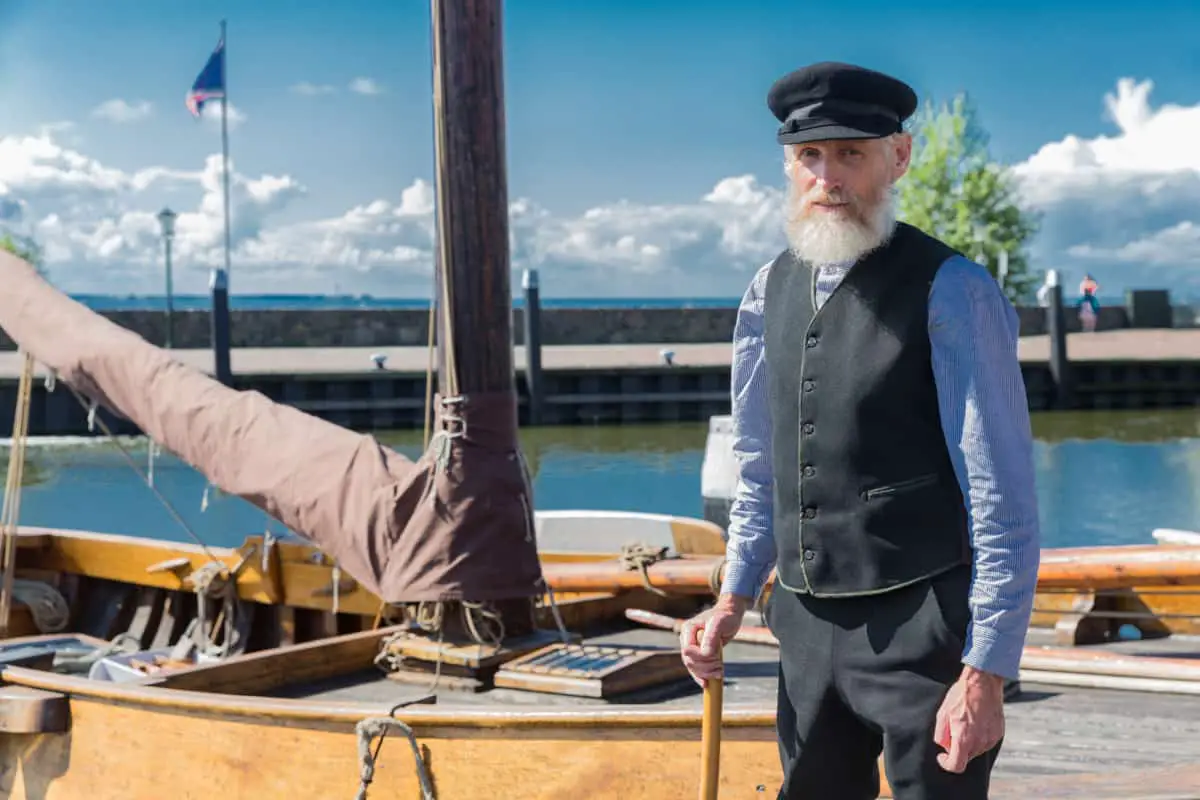As an Amazon Associate, we earn from qualifying purchases. We may also earn commissions if you purchase products from other retailers after clicking on a link from our site.
I am 34, age isn’t a problem for me, so to better respond to this question I will start out with a story.
In 2015 at the age of 90, Jim Boren of Marinette, Wisconsin, bought a 30-foot Hunter sailboat — and he single-handedly sailed his boat (named Skoal) all year on long cruises and races. Boren then told younger fellow sailors, “Don’t listen to anybody that says you are too old for that.” But what if you worry that you’re too old for sailing?
The following help you to determine if you’re too old for sailing:
- Determine your hearing ability.
- Check your eyesight.
- Know your physical health status.
- Understand how weather impacts sailing difficulty.
- Understand what boat type and size is suitable.
Sailing can be done at any age, you are never too old for sailing, whether coastal or offshore. But, sailing requires a certain physical capacity and solid health to make sure you are safe on the water, continue reading to find out whether or not you are fit for sailing!
This article will explain in detail the factors you need to consider when deciding whether or not you’re too old for sailing or not.
1. Determine Your Hearing Ability
It’s only natural that the human senses begin to fade the older they get. However, it happens differently and at different ages for certain people. While some adults over 70 may still have excellent hearing, others in their late 50s may already lose their hearing.
Your hearing is crucial when going out to sail. Being able to contact the coast guard and other fellow sailors when going out to sail is critical, especially in blue water sailing (offshore sailing).
Since you’re most likely out in the open waters, VHF radio is used to communicate, so if you have problems hearing people over the phone, it’ll most likely be the same when sailing.
There’s undoubtedly vital information that needs to be passed at sea, most of the time regarding safety and precautions. Hearing these details is essential to safe and secure sailing, especially in racing (maybe less while blue water sailing since there won’t be anyone within reach of your VHF so coms can be done in text format over satellite connection).
How Can You Get Around Hearing Loss?
As good hearing is essential for sailing, it’s not a criterion. In this way, I mean you can still go sailing even without a perfect hearing. How? Here’s how you might be surprised to know that many sailors have pretty bad hearing (there are many old sailors out there), yet they navigate the seas with ease. This, however, comes with much experience and professionalism.
You can get around hearing loss while sailing by traveling with someone who has good hearing, joining other sailors, or getting water-resistant hearing aids. These strategies may be especially good for you if you’re not much of a professional.
Invite Someone With Good Hearing To Join You
If your hearing becomes an issue for you, here’s a pretty easy solution. Find someone who has an excellent hearing to go sailing with you. This person will be your ears throughout the entire sailing journey. You could even become sailing partners.
When you have someone to sail with you, you can share stories while sailing. That’s fun!
Join Other Sailors
Just like finding someone to go sailing with you, you can also go sailing with someone else. Join in on their sailing crew. Not only is it much more fun having other sailors like yourself around, but it also solves the issue of hearing. There are sailing crew websites like Crew Seekers, Find a Crew, and Ocean Crew Link, where you can find a sailing crew to join.
Get Water-Resistant Hearing Aids
Getting yourself hearing aids is another effective way to get around poor hearing at sea. Although hearing aids might be expensive, you can always get a cheaper replacement that you use while at sea.
The hearing aids being water-resistant is also very important.
So, this explains it. While you might consider yourself too old for sailing due to your hearing ability, you can see that it’s quickly sorted with either of these two options.

2. Check Your Eyesight
When going sailing, it’s a whole different ball game when you have impaired eyesight due to aging. Your eyes are essential when sailing, especially since a large part of the information is displayed on system screens or watching your surroundings. Some of this essential information includes:
- Weather forecasts and changes
- Incoming vessels
- Sail trim
- Under water obstacles
Weather Forecasts and Changes
Sudden changes in the weather are very commonplace while out sailing. Many sailors, especially the older ones, have been sailing for years and have experience dealing with the dramatic changes in the weather.
For safe sailing, equipment, and systems to accurately predict the weather and predict changes have been developed.
These systems display stats, figures, numbers, and other essential information that helps guide you in a safe sailing journey. Poor eyesight means you might not see these details, which could pose even more danger.
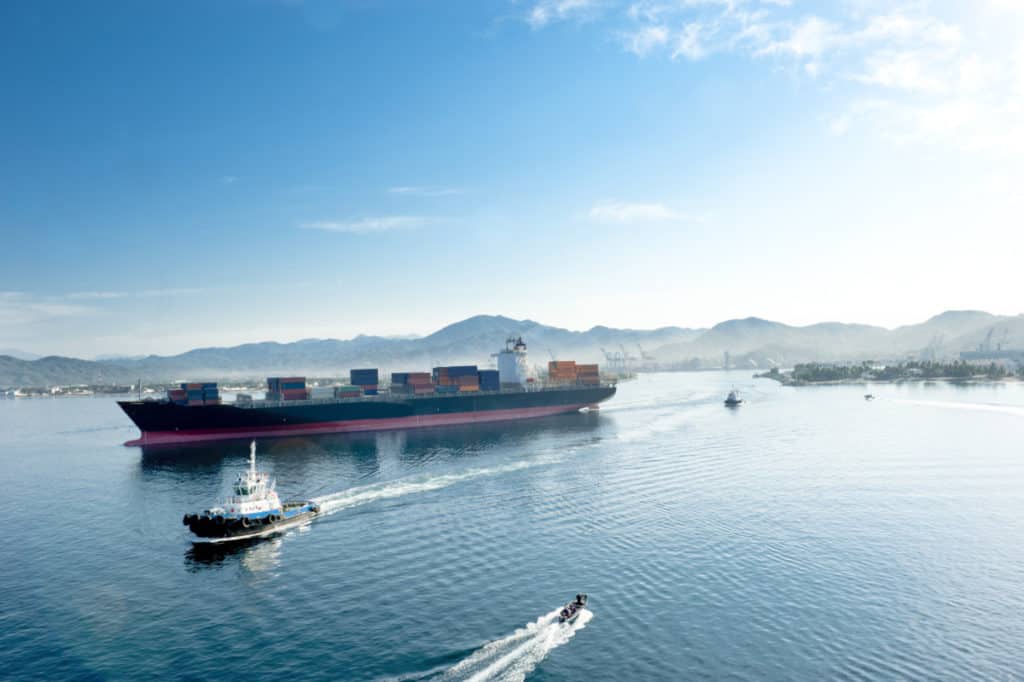
Incoming Vessels
Since the sea is also a transport system, there are fewer chances you’re the only one sailing. Asides from poor eyesight stopping you from seeing an incoming vessel or other vital details while sailing, the system makes it easier by displaying what’s at sea on its screen for better and easier viewing.
If your eyesight still doesn’t let you see what’s in front of you, then it might dampen your sailing experience. You might even have issues with some activities while sailing, like single-handed crossings.
But does that still mean you’re too old for sailing?
How To Get Around Poor Eyesight in Sailing
Eyesight is essential in sailing; that’s a fact. But it’s not a definite criterion, like hearing ability, especially since there are effortless ways you can go around poor eyesight and still have the best sailing experience.
Here are some efficient ways to get around poor eyesight when sailing:
- Take along someone with good eyesight.
- Get a special pair of glasses suited for salt water that has a good fit and with a strap that doesnt fall over board.
Invite Someone With Good Eyesight
Having someone go sailing with you is one of the most effective solutions to any possible issue you might face when considering aging and sailing. They could be your eyes while you focus more on the other things you love so much about sailing. What’s more, a little company always equals more fun when sailing.
Get a Pair of Glasses
Just like poor eyesight doesn’t stop you from working, it also doesn’t stop you from sailing. Get a pair of glasses to put that eyesight in its place.
Since the turbulence on the sea can get pretty much, the chances are that your glasses might fall off and get swept away, leaving you back at square one. Well, you can easily solve that problem. Get a pair of glasses with a lanyard to avoid them from falling off.
If you still feel like your eyesight might be a problem, then consider doing the following:
- Sail in open areas and moor outside the crowded marinas, then use the dinghy in and out from the boat.
- Research if you can get laser surgery, the results only have to be good enough for you to be able to enjoy sailing, not perfect.

3. Know Your Physical Health Status
It’s well-known that your health encounters some problems as you get older. You may find it more difficult to do some of the things you used to do while much younger now. It’s only natural that the extent to which you can push yourselves physically and mentally reduces the older you get.
When sailing, your health status also matters. Not only does it affect certain sailing activities, but it also affects what you sail with and how far you can sail. As people get older, they opt for shorter routes with less challenging activities. However, some people can still take on challenging sailing activities even at an old age. It all just boils down to your experience at sailing and how much of an effort the sail is with the level of experience that you have.
Whether or not these factors might affect your sailing experience, they shouldn’t necessarily stop you from sailing. What’s more, there are steps you can take to ensure that your health status doesn’t stand in the way of a blissful sailing journey.
Health status is that you can still sail without many issues even while you’re well past your 60s and 70s. Even in your 80s, you can still regularly have a great sailing experience. So, when do you begin to consider yourself too old to sail with health status in the picture?
Here’s a quick answer to settle it all down. The 2018 single-handed trans-Pac race that covered a distance of San Francisco to Hawaii was completed by a 72-year-old man amongst other people in their late 50s.
So, what does this tell you? It tells you that you’re not too old to sail. Some of the best sailors are those well over their 50s, including men and women, even in long-distance sailing like blue water sailing. So, are you too old to sail? Not! There’s no age limit, whether a day trip or a full-out ocean crossing!
However, if you still feel like your health is an issue;
“it’s likely not a problem with age but rather a problem with your health itself. “
There are thousands of people with health conditions that might give them concerns at sea, and some of these health conditions occur in much younger people as well.
So, before I get into how you can get around sailing with your health on a check, let’s first dive into the health requirements for sailing.
Health Requirements for Sailing
Keeping in mind that no health centers are waiting at checkpoints in the middle of the ocean (although there are coast guard etc these are usually extremely expensive and only for life and death situations), it’s effortless to be carried away by health concerns and health-related accidents while sailing, especially when you’re much older.
However, even with your health concerns, you definitely can still go sailing as much as a 25-year-old that shares the same health issue.
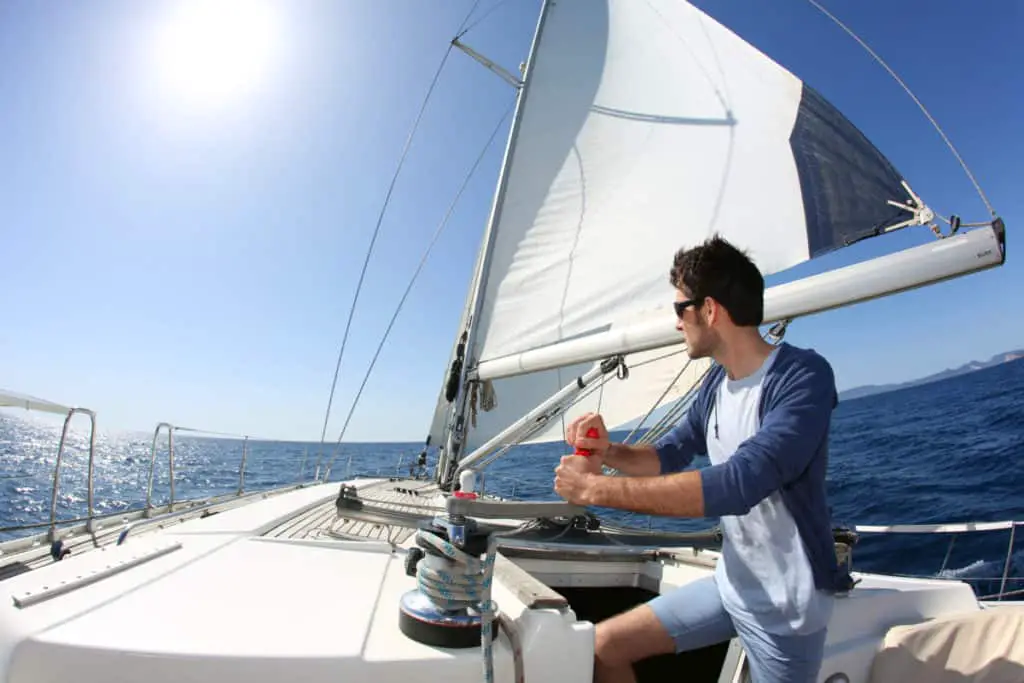
What Are the Physical Demands for Sailing?
What I mean by physical demands are requirements you must meet physically to sail problem-free.
It works just like how height works when getting into certain pools. The height limit doesn’t stop you from swimming; it only means you can’t enter that particular pool because of its depth or that you can’t get to a particular part of the pool.
The physical demands for sailing, whether young or old, are:
- Balance
- Coordination
- Agility
- Strength
- Flexibility
- Cardiovascular health
- Aerobic and anaerobic capacity
- Muscle strength
These are physical demands that come with sailing and they’re all a function of one’s physical fitness, essential for everyone, old or young.
I have plenty of experience (from the military) with training people to reach specific physical goals, so if you want help with creating a workout routine I suggest you send me an email.
What Are the Mental Demands for Sailing?
Most experienced sailors believe that sailing is more of the mind than the state of the body. When learning to sail or going out to sail, it’s essential to note that your mental health and wellness are equally important and even more important than your physical health.
While staring off at sea, getting a bit emotional, and jumping off into the ocean might seem far-fetched, the mental state of sailors affects their sailing a whole lot more than that.

For one, when sailing, the chances are that you’ll come across situations that are pretty challenging, especially those that threaten your life. Discipline to the right thing is key, even though it is boring or maybe doesn’t make much sense at the time.
Having the discipline to reef early and often is a good example.
Having a stronger mental state means higher chances of being composed and doing the right thing to get yourself out of that situation.
The mental demands for sailing are:
- Focus and concentration
- Confidence
- Good memory
- Ability to maintain calm and manage anxiety
Generally, your mental health is vital when setting out to sea. The good thing about sailing is that it also helps improve your mental health and is even an activity included in therapy sessions today. So yes, your mental health doesn’t declare you too old to sail as it’s also a general health factor rather than an age-related factor.
Since there are no ambulance or quick health hospitals at sea, here are some other ways you can take to ensure your health isn’t a problem while sailing:
- Avoid long-distance sailing. Avoiding long-distance sailing for severe health conditions like epilepsy, heart diseases, diabetes, and chronic allergies is best. The bay, lakes, and coastal waters are good sailing areas since health stations aren’t very far from sailing areas and you will most likely be able to get picked up by a friend.
- Have emergency medical supplies. Take along emergency medications and health supplies in case of minor accidents and problems that could develop into a health issue. These include allergies, antidepressants, stress, and pain relief medications. It’s also advisable to take a first aid kit and learn simple first aid processes.
- Use a harness. For physical disability or an inability to swim due to health-related factors, try adding a harness (and tether) system to your sailboat.
- Don’t sail alone: Get a sailing partner, a crew, or join someone else’s crew for extra safety.
4. Understand How Weather Impacts Sailing Difficulty
As you get older, certain conditions are harder for you than for a younger sailor. One of which is excessive exposure to cold (extreme) environments. It works just like it would in your everyday life. When in the ocean and around large bodies of water, weather conditions change rapidly and a beautiful day can quickly turn into danger. However, this doesn’t stop you from sailing.
Here are a few ways to get around that, as well:
- Get a GPS tracker and a radio communication device. Having a GPS tracker and a radio communication device keeps you connected with coastal guards and fellow sailors. It makes it easier to warn you as well as give you information about weather conditions and changes in specific areas.
- Pay attention to weather forecasts before setting out, always expect bad weather, pack and dress with contingencies in mind.
- Get a suitable outfit. Dress appropriately for the ride at sea. You might need to cover up more if cold weather gets to you easily.
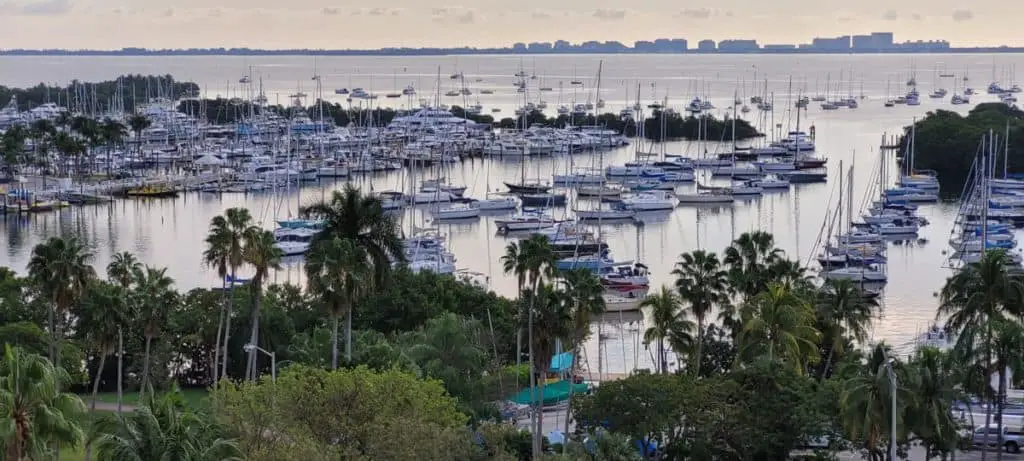
5. Understand What Boat Type and Size Is Suitable
For every sailing journey, you need a boat (you can call me Captain obvious, that’s ok), and specific boat types are best for different types of sailing. There are certain types of sailing that require bigger boats (+40ft).
An example is long-distance sailing, where you need to carry along food and other resources for sustenance. There are also other perks and benefits to using bigger boats when sailing.
In my article, What is the best-sized catamaran, you will learn why boat size matters and what happens if you have too big of a boat.
In the same way, small boats (sub 30ft) are best for coastal and day sailing. Operating a big boat might be more demanding than a smaller boat regarding health requirements.
What Are the Types of Sailing?
There are different types of sailing, with new ones coming to light in recent years.
The types of sailing are as follows:
- Racing
- Cruising
- Bluewater/off-shore sailing
Other types of sailing include para world sailing, which is sailing by people with disabilities.
Racing
This is competition-style sailing, with fleet racing being the most prevalent. In racing sailing, a fleet of sailboats is known as a regatta, each partaking in selective races with set destinations and milestones.
A winner or best sailor is selected based on reaching the finish line after the other boats. It’s a sport in many parts of the world and an activity in the Olympics.
It is done on everything from small Hobie cats up to giant 60+ft carbon fiber beasts.
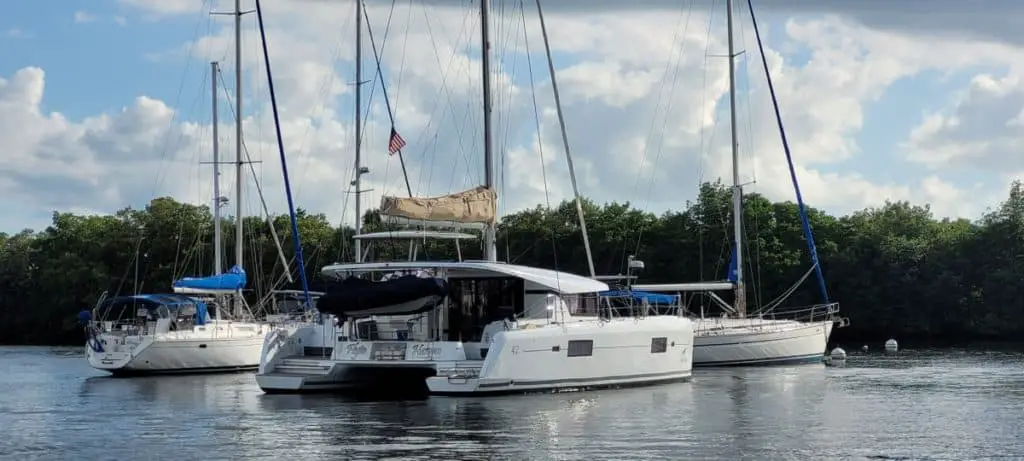
Cruising
Unlike racing, cruising is less competition and more personal, individual activity. It entails living aboard your sailboat for an extended period and enjoying the benefits that come with sailing for the pleasure of it. It’s considered a hobby and mini-adventure by most sailors.
Cruising is usually divided into coastal, staying close to land, and bluewater cruising.
Bluewater
This type of sailing is a more extended type that involves vast bodies of water like the Atlantic and extends for a more extended period. With bluewater sailing, you’ll be spending well over a week at sea as you’ll be away from land for more extended periods. It most times entails ocean crossing and moving from one destination to another.
Unlike cruising and racing, bluewater sailing requires a certain level of expertise and self-sufficiency. This type of sailing isn’t advised for people with severe health conditions.
Since you need big boats for blue water journeys, it’s best to assume that the older you get, the fewer sailing options available. However, even this isn’t true. In recent years, sailing has become a flexible, less demanding activity with systems, programs, and facilities to make sailing much more accessible, especially for older people.
It is also worth mentioning that these categories are not fixed, especially the bluewater/cruising category often goes hand in hand.
Am I Too Old To Start Sailing?
Hopefully, I have already made my point, but to be extra clear!
You’re not too old to start sailing as sailing is an evergreen activity, meaning you can always go sailing, even at an old age. Some might prefer the blue water kind of sailing, while others might like short day trips on a boat in beautiful weather, recommended for senior citizens.
As long as you’re healthy, age shouldn’t get in the way of your sailing. Before deciding whether or not sailing at a later age is for you, you must evaluate your overall health first.
Can I Learn To Sail When I’m Old?
You can learn to sail when you’re old. As long as you’re healthy, your age shouldn’t stop you from learning to operate a sailboat properly. Boats come in different designs to make the sailing process smoother, and this is good news for sailors, especially older people just learning to sail.
The controls are easier to handle and even much lighter to handle. There are certain types of sailing that require a much larger-sized boat. While you might see this as a problem since you’re much older, it’s not.
Even with the modernized boat sailing systems, boat size isn’t a problem, making it easy to command larger boats with motorized winches.
What Type of Boat Can I Get?
These are the basic rules for choosing a sailboat, you should get a boat that you can:
- Afford.
- Handle safely.
- Enjoy sailing.
Depending on what you want, your level of preferred comfort, and how much you want to get out of the sailing experience, you can decide which boat feel best for you.
Can I Solo Sail When I Am Old?
You can definitely solo sail (short-handed) when you are old, as long as you are in good physical and mental health and have the proper knowledge and experience. Many times it is safer to be old but have experience than young and inexperienced.
Conclusion
As we have spent the bulk of this article stressing, getting older does not in any way stop you from sailing. However, you must ensure to pay attention to the factors that determine if you’re fit for sailing, even in old age.

